Last month, I said goodbye to a team, product, and culture I had come to know well and quit my job. In nearly five years on the job— practically a lifetime in tech years— I had stretched my storytelling skills, solidified my management chops, and did some of the more creative work of my career as a UX researcher. I got to build and grow a team from scratch, conduct research across a number of topics (from food, to small businesses, to video, and beyond), and was encouraged to keep up my writing practice, despite it not being part of my day-to-day responsibilities— in my experience, a rarity in the tech world.
But it was time. Time for a change, time for a break, time for something new. I did not have a job lined up, but that was the point— I needed to take a breather to figure things out and recover from the grind, first, and thanks to my squirrel-like saving tendencies and a still-booming tech market, I am lucky enough to be able to afford this kind of break. So I packed up my computer in a FedEx box shipped to my home. I cut up my badge. I waved goodbye from behind a screen and said my final farewell through tinny headphones that could never truly capture the way I felt: grateful, hopeful, relieved, and also exhausted.
“Risky,” “courageous,” “inspiring,”— these were some of the words I heard used to describe what I was doing: leaving without a job or even a plan for what came next. (Perhaps also “foolhardy,” “terrifying,” “dumb,” depending on who you ask.) But I’ve long been comfortable with uncertainty and fond of following my intuition, an approach that has served me well in the past. Especially in this moment— amidst an interminable election season and a pandemic with too many surges to count, when what’s down is up and what’s up is down and nothing seems to make sense anymore— going with my gut, even if it didn’t come with a job description or in a tidy package others could understand, felt right. In fact, quitting was the only thing that made any sense at all.
Crisis and the Opportunity Effect
In times of crisis (and yes, the entirety of 2020 qualifies here), it’s natural to take stock of one’s life and reflect on the quality of one’s experience. If life suddenly appears to be shorter, more difficult, more traumatic, or simply different than expected, the way we spend our time takes on entirely new meaning, and our satisfaction with the status quo can come into question. When the world is on fire — literally, politically, economically — it’s natural to ask yourself: Am I happy? Am I living a life in accordance with my values? Am I working on things that are good for the business, but also for me? Am I spending my time in ways that honor who I am as an individual? What am I doing? There’s nothing like a crisis to help you get your life together.
External forces have a way of driving internal reflection and inspiring change.
When I asked myself these questions, it was clear a change was necessary. My work had become predictable, and I longed for new problems to solve. My interests had evolved, and I found more meaning in projects outside my 9-5 than those within the realm of my responsibilities. On top of that, there were so many other things I wanted to do— creative projects, like finishing my book, launching this newsletter, and trying my hand at audio, or conducting research on topics I had always been curious about but that I could never focus on if I stayed, like wellbeing, creativity, personal finance, and healthcare. These kinds of personal A-ha moments can take on greater meaning in times of crisis. (If you’re drawn to the idea of meaningfully reorienting your life, you might enjoy this post from the archives on how to realign your values, purpose, and career.)
You're looking for the intersection of what’s good for the business, leverages your skill set, and is something you're passionate about.
Anyone who stops to look up right now will experience a changed landscape. In many industries, the future is bleaker as a result of the pandemic, but despite the circumstances, tech remains fairly strong. Certainly, the pandemic has upended “normal” for the foreseeable future, and some tech companies (Airbnb, for example) have seen tremendous challenges. But others (Google, Amazon, Netflix, Instacart, and the like) have emerged victorious. The industry is changing, and though not without layoffs, it is evolving more in a promising way than an oh-shit way for many tech workers, especially for those with expertise on the technical or product side.
In some cases, the same possibilities that existed pre-pandemic exist today, but have taken on more meaning. For instance, you could always work in health tech if you wanted to, but for many, the pull and urgency to enter this field is no doubt greater today, given the circumstances. In other cases, it’s not just the crisis of the moment that has made certain existing opportunities more compelling— because so many companies are embracing a distributed workforce, there are now new (to us) opportunities available, too. Suddenly, companies that were previously off the table are newly relevant, because we’re all working remotely and don’t have to make that cross-country move after all. Careers that before felt out of reach now seem possible. It’s a new world, and we are discovering new whims, desires, and needs within it. Crisis, in this sense, is about possibility.
Could it really be that easy? you might be wondering. For a certain kind of knowledge worker— those with youth on their side, a desire for mobility, and unburdened by caregiving responsibilities for children, elders, or spouses— I think so. For the rest of us, even though crisis can bring forth opportunity, the road to getting there may be rockier. Because for most of us, in times of crisis, we have to focus on the basics before we can tackle anything else; when the house is on fire, finding inspiration and opportunity is simply not a priority. Since so many of us currently fall into this category, I’ll spend the remainder of this essay focused here.
Crisis and the Survival Effect
In this scenario, crisis is about survival. Survival, of course, means many things. If we look at Maslow’s hierarchy of needs, the basic needs to exist as a person in the world should not be surprising: they are comprised of physiological needs which we need to survive (food, water, warmth, rest) and safety needs (security, safety), which protect our beings so that we can focus on higher order needs. Only when basic needs are met can psychological needs be met (belonging, love, sense of accomplishment), and eventually, self-fulfillment needs (unlocking our full potential, including creatively). You can’t see a crisis as an opportunity if you are fighting to survive it.
The pandemic has hampered, and in some cases made impossible, many Americans’ ability to meet their basic needs. Since May, eight million Americans now live below the poverty line, the result of economic devastation that has left many unemployed, compounded with federal aid disappearing. People who never thought they’d have to worry about putting food on the table now regularly do. In addition, many of us are also struggling to rest under these conditions. Parents, for one, have been vocal about a lack of support, need for rest, and impending burnout as they balance childcare, professional responsibilities, and more, and they’re not the only ones struggling. This exhaustion may look different across households and corners of the country, but it is very real: after months in lockdown, with further uncertainty looming, many of us are physically, mentally, and emotionally tired.
Rest and Survival— Really?
But can we really complain about needing a break when we’ve got a warm home and food to come home to? For some, it may be hard to accept the idea that sufficient rest is as crucial as food, water, and warmth, and critical for survival— surely, this emphasis on rest is overblown, some may think. On top of skepticism, empathizing with those who are tired, exhausted, burned out, or in need of a nap may not always come easily to us. Sometimes we are able to offer a generous perspective, but often we are not. Tired, ha! You may be thinking. Aren’t we all? That’s what coffee is for, right? Exhaustion is nothing, of course, compared to food insecurity or homelessness. And though there are ways to put a bandaid on our energy levels in a pinch, such patch fixes aren’t sustainable. A lack of rest is still problematic, and one we would do well not to ignore.
Even before the pandemic, in many circles, professing exhaustion hardly garnered much sympathy. First, it goes against the grain of much of what we’ve been taught about what it means to be American: that time is money, so we must work hard, fake it till we make it, climb that ladder till we break into the middle class, and beyond. We believe in capitalism, and therefore productivity, and staying busy— it’s the American way, and the reason terms like “workaholic,” have made it into our everyday vernacular. That’s true even if we don’t particularly want to keep working so hard— it’s simply what we do. Resting, in this context, is nothing short of, well, wrong. Part of what makes us uncomfortable with the idea that rest is a basic need is that we simply don’t respect it— in American society, it will never be as important as getting shit done.
Secondly, to accept that rest is a basic need— it sounds so… privileged, doesn’t it? One cannot afford to rest without sufficient means; therefore, the argument might go, rest is only for the wealthy. We need only look at vacation homes (designated places of rest), housekeepers and nannies (providers of rest), spas, sound baths, salt rooms, and the like (purveyors of physical rest) to come to the conclusion that rest is a luxury. Even rest that looks “free”— like a walk in a park or a hike in nature— is of course not, since such activities require time, and in America, time is money. If rest is a luxury, by definition, it cannot be a necessity.
On top of that, though privilege certainly exists in other areas of our lives, there’s something particularly “sticky” about the privilege of rest. Unlike the privilege of home or food (everyone’s gotta eat, right?), disparities of rest often elicit more judgment. (This, again, is likely due to our strong cultural emphasis on work and productivity. ) The association between privilege and rest may be another reason for why talking about rest, prioritizing it, and taking it seriously can be difficult for so many of us.
To accept and understand rest as a basic need was always complicated in America — the pandemic has merely exacerbated this tension.
Rest and Survival— Really.
And yet, though we may resist accepting the idea that rest is a basic need, other (more civilized) countries have not only accepted this idea, but embraced rest as a fundamental right. In the U.S., you might be hard pressed to find others who agree that rest is indeed a right: given our cultural obsession with productivity, rest can feel like an “extra,” frivolous, self-indulgent, and even lazy. But go to France, where by law full-time workers are guaranteed five weeks’ vacation a year, plus public holidays, and a maximum 35-hour work week, or Spain, where mandated afternoon siestas in some regions of the country regularly shut down commerce, office, and schools for several hours in the middle of the day, and it’s easy to see a model for what it might mean to espouse rest as a basic right. Cómo? Quoi? Sí!
The benefit of this approach is twofold: individuals receive the rest they need, and rest is accessible to all rather than some. (Of course, how individuals “apply” that rest will look different given the means available to them, but everyone at least has a chance to rest. Even if rest looks different across socioeconomic groups, we all need it.) These protected moments of respite enable citizens to focus on priorities outside of work, like family, friendship, community, and joie de vivre. Rest is what enables us to be a person in the world.
A quest for rest
Even if we accept that rest really is key to our survival (as absurd as it is to even have to make that case), the path forward remains challenging. The irony is that because working is so ingrained in our way of life and entrenched in our values system, we must work at getting rest. So unaccustomed to taking rest seriously are we that, when the pandemic hit, it came to many of us (and our employers) as a surprise that we would not simply continue operating as normal, despite the circumstances. This explains the influx of articles, op-eds, and newsletters reminding us that not doing it all is not only acceptable, but expected during a pandemic. These pieces name the exhaustion we are feeling and validate our experience, providing comfort that we are not the only ones having trouble getting shit done. “It’s not just you,” they whisper, stroking our heads as we lay in their lap in the fetal position. “It’s everyone else, too.” Not only that, but such pieces serve to give us permission to rest instead of to produce, create, or make— they are a nudge toward self-compassion, a gentle and convincing reminder that it’s okay to be behind, stuck, or unmotivated. They affirm that everything we are feeling is normal, and that even if we don’t send that email or write that blog post, everything will be okay (or as “okay” as things can be in the year of 2020). And besides, no one else is getting any work done anyway, right?
Artist Adam Kurtz says it like it is on Instagram.
Despite the pandemic, the last few years have been intensely productive for me. If you’re subscribed to my newsletter, you know that in addition to working my day job, I’ve been writing a book about listening (which you can now preorder!), in addition to writing for a number of publications, and raising my first child (Happy one year, bebé!). Plus, like all of you, managing the chaos and emotional tumult that has been 2020. When I think of this list, I’m proud of what I’ve been able to achieve. (And yes, I admit I am a chronic overachiever— try not to hold it against me.) But I also think, “Holy shit. That’s crazy. No wonder you are exhausted!” My ability to be productive came at a cost: relentless calendar shuffling to accommodate meetings and breastfeeding sessions, split shifts with my husband to cover off on childcare for our son, early mornings and late nights to squeeze in one last email or another round of edits, and rushed Zoom family reunions before once more getting back to work. Even dinners, which would usually provide a brief moment of respite, failed to help me relax, since we were often discussing the rising number of COVID cases, coordinating childcare shifts, or once more talking about work.
Which is how I found myself in the midst of taking on a new and exciting role at work and quickly realizing I did not have any gas left in the tank to take it on. Reader, I. am. tired. Like many of us, I need a break— that is why I quit my job last month. I feel extremely grateful, privileged, and lucky to be able to hit pause, especially in a moment like this. I hoped to redirect my efforts toward more energizing work, and also, importantly, to rest: to recover from the demands of working two jobs for two years and maintain a manageable workload for once, to give myself the necessary time and space to reflect on my experience and thoughtfully explore what might come next, to reconnect with family, and to reclaim, in my own way, what it means to be a productive part of society during these strange and hellish times.
It’s been a month, and I can’t say I’m crushing it. As it turns out, I’m terrible at not working: I’ve kicked off a number of writing projects, consulted with companies on how to build out a UXR function, given myself all sorts of deadlines, and am busier than I thought was possible. Technically, I am now working one job instead of two, but I’m like a kid in a candy shop— there’s so much I want to do! It’s energizing to have so many projects I am excited by, but also hardly restful.
I haven’t fared much better on the resting front when I’m not working, either. I can’t say I’ve been sleeping in or sleeping better, or that I’ve made time to take in the sunrise and breathe deeply. Instead, I find myself filling silence with podcasts and turning tender moments with my son into a photoshoot. I’ve been rabid for news (I blame the election) and, unsurprisingly, feel more scattered than centered. Besides feeling distracted, I feel guilty— a common caregiving emotion. I’ve put off calls with friends if they call during my son’s nap time— I need that time to write!— and fear I’m dropping the ball on others. When I hear about others’ woes, I worry I haven’t been there enough for them— that I’ve been a bad friend, wife, sister, daughter. (It’s similar to the challenge any manager or parent faces when navigating that careful balancing act of tending to one’s own needs and those of one’s direct reports or children— leaders eat last, right? Or is it your oxygen mask that goes on first?) No matter how I spend my time, I find myself feeling guilty about what I’m not getting done, or who I’m not supporting by focusing on other things, or how others are making a sacrifice on my behalf, since asking for help without asking for too much help and burdening others is its own challenge. Trying to do all of that and take a breather for myself? Yeah, it’s hard.
I realize I sound somewhat ridiculous describing my time “off”— largely scheduled and replete with activities and a whopping sense of guilt and anxiety— it’s not exactly a vacation. It’s obvious I’m bad at resting.
So here is where I ask for your help. Have you, dear reader, discovered any restful routines or restorative techniques that help you decompress? Maybe you have made significant life changes to honor your need for rest, or perhaps you manage with micro ways to get rest, even if it’s just a five minute breathing exercise or a favorite calming song that momentarily transports you to a tranquil place. Maybe you’ve found that elusive sense of “balance” in your life, or perhaps you have something like balance— not in the true sense of the word where time is tidily distributed and stress is magically kept at bay or managed before you explode— but a version of it that is grounding, stabilizing, and restful. Could that be you? If so, teach me your ways. Tell me what has worked for you, big or small, when it comes to getting rest. How do you rest?
If, like me, you struggle with hitting pause and have yet to find your way to rest, I’d love to hear from you, too— nothing feels better than knowing you are not alone. What have you tried and failed at? What have you been meaning to try, but haven’t gotten around to? What stops you from giving rest a chance in the first place? Chances are, others have tried and failed in some way, too. These failures can be instructive and even inspire new approaches to explore. Besides, what doesn’t work for one person may very well be perfect for someone else, so we can all benefit from sharing our resting failures with each other.
Americans are not good at resting— I’m certainly not. But I’m going to try, and maybe even learn something about myself in the process. If you’re interested in coming along on my quest for rest, hit subscribe, like, or comment below. Like the articles that remind us we're not alone, your feedback let's me know I'm not the only one trying to work it all out. Perhaps together, we can all learn how to rest and recharge for once.
All right, gonna go light my “Siesta Siesta” incense and take a deep breath before I take my next meeting now.
Till next time,
Ximena

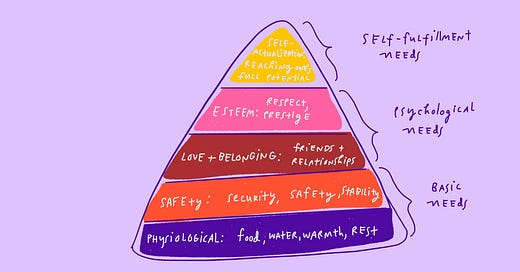


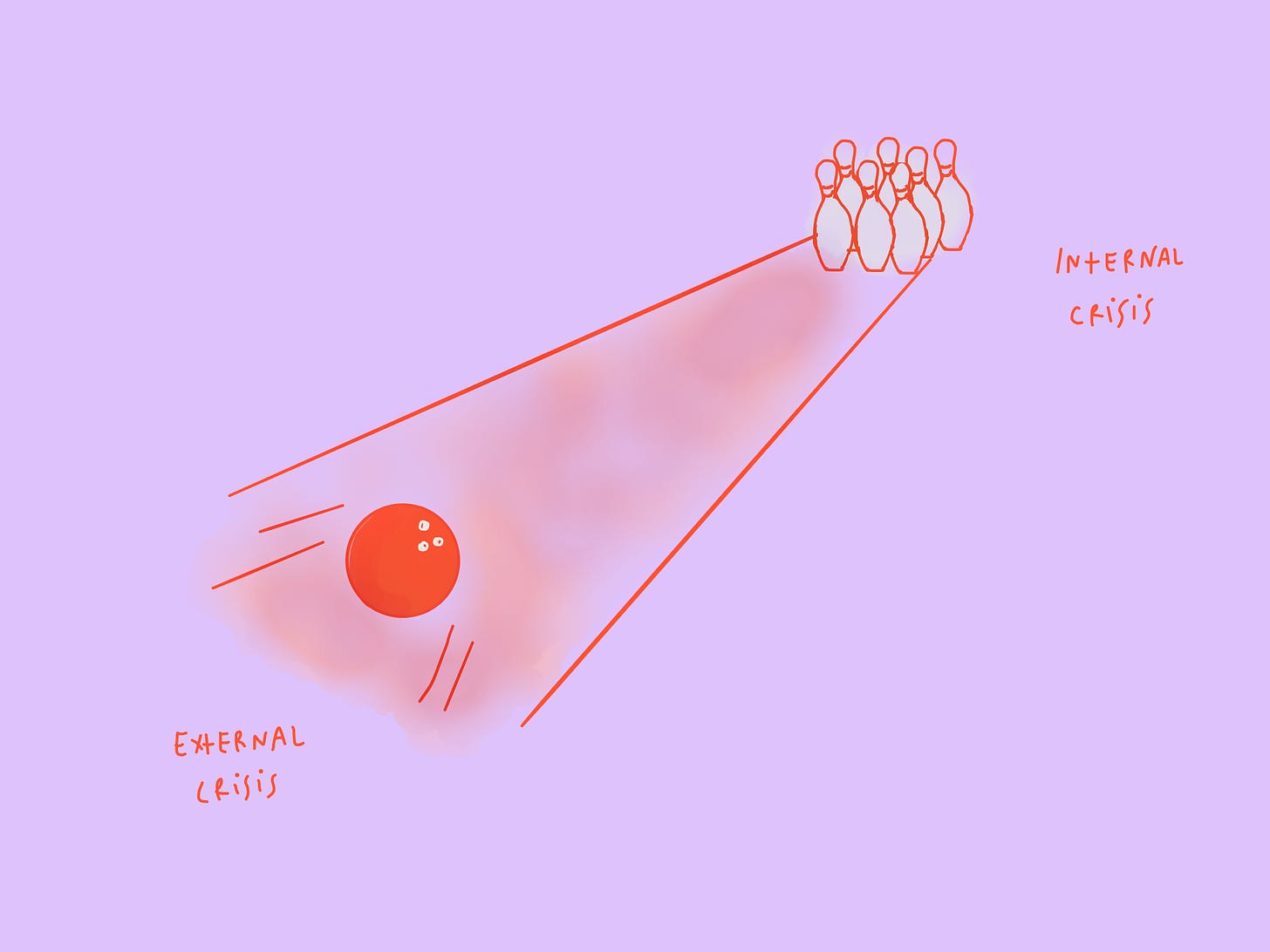
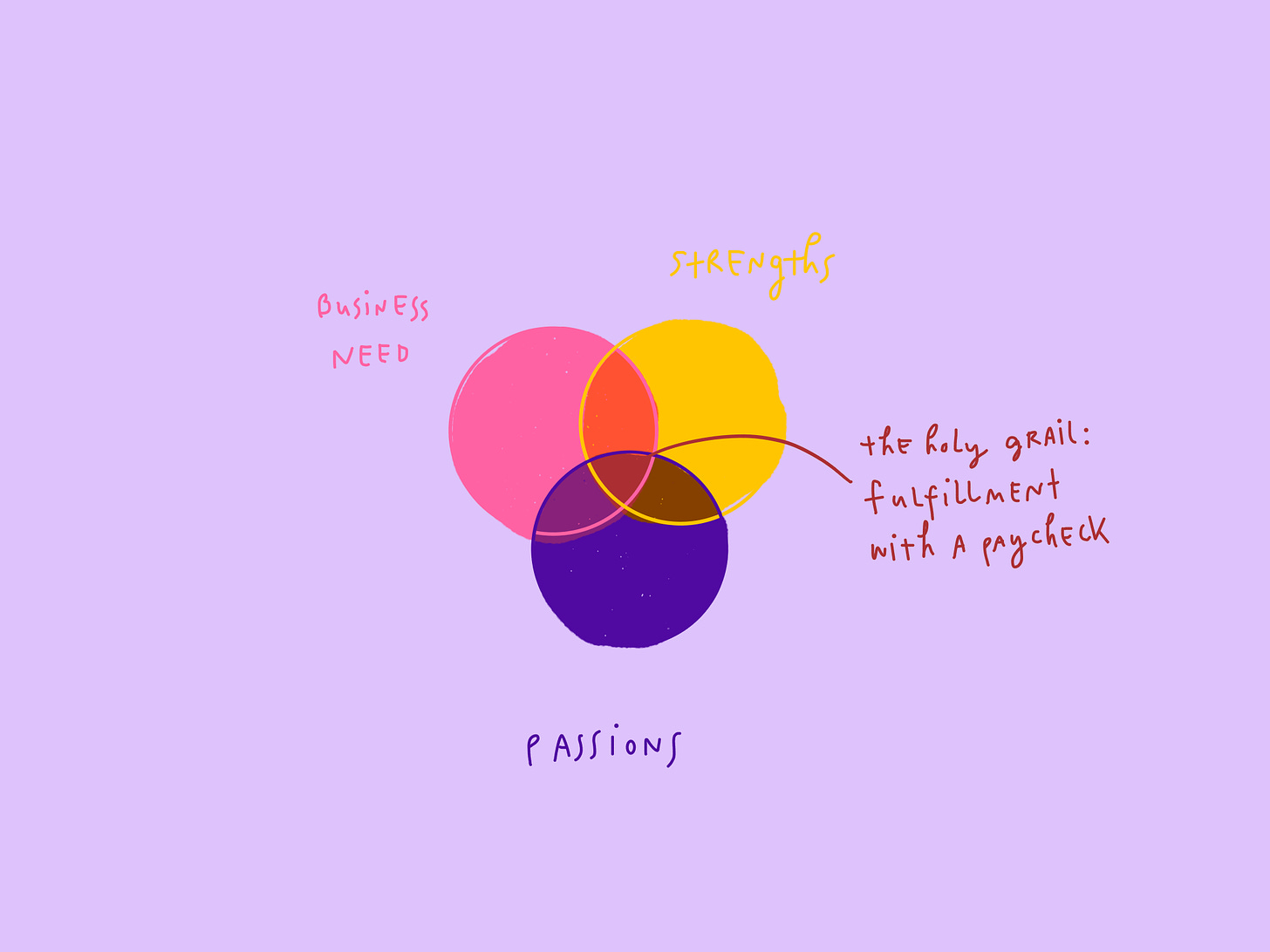
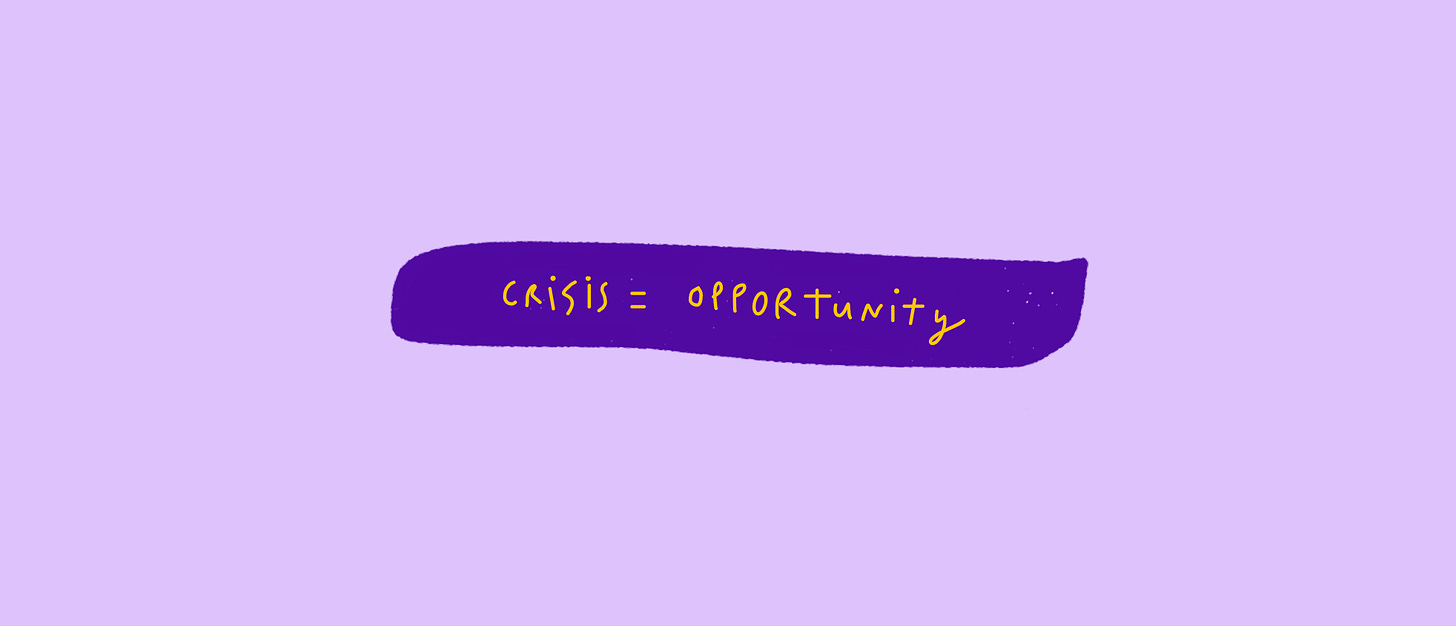

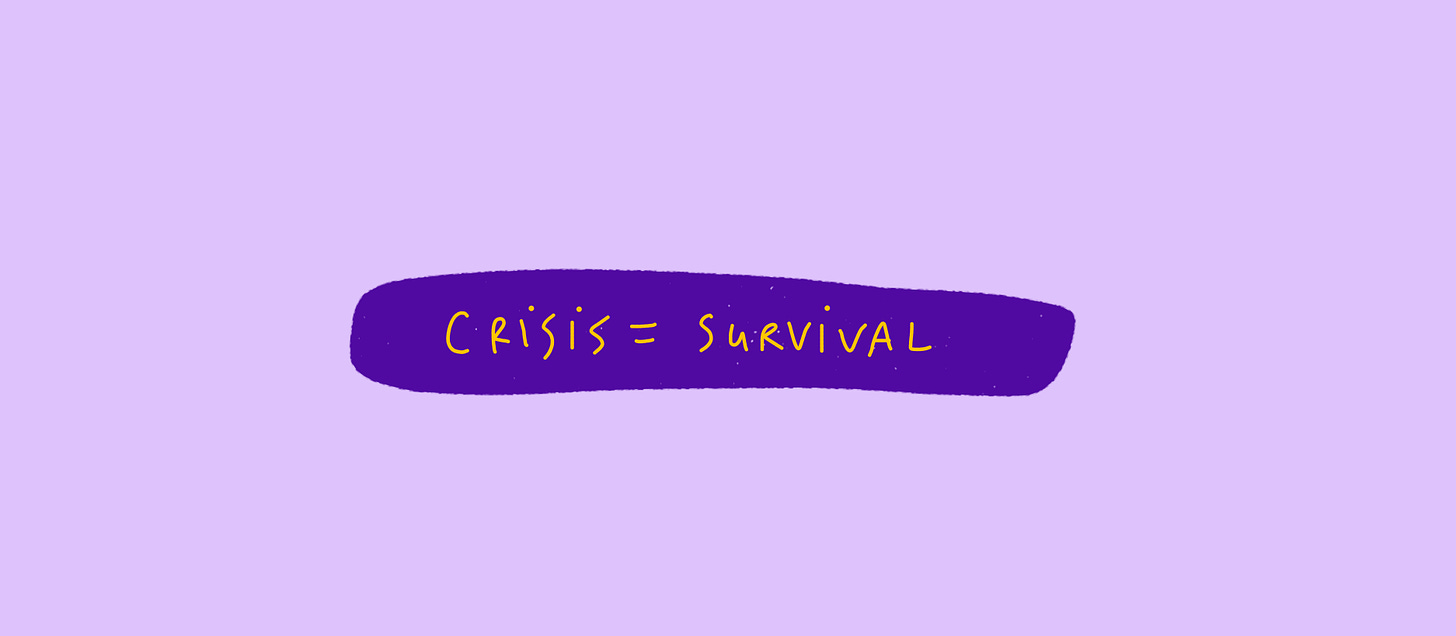
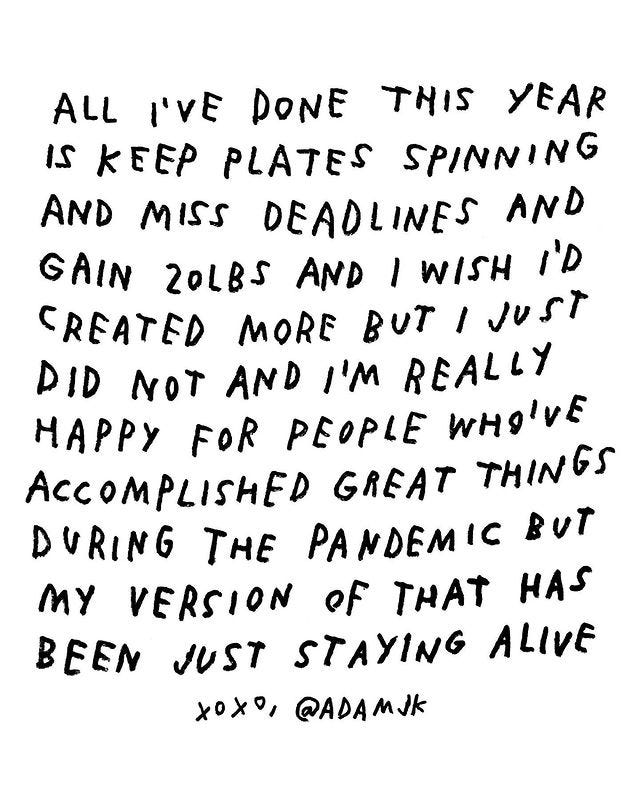
Thank you for this great post; I relate so much to what you've written. 🙏🏻 Ironically, what has worked for me, Ximena, is SCHEDULING rest. I have an iCal called "Whitespace" and timebox 2-4 hours daily to NOT schedule anything, take life as it comes (and, yes, I must practice not defaulting to leveraging it as "backup time" for everything I wanted to get done that day yet didn't 🤓). The second thing is scheduling time to be of service to others. For me, this has included volunteering for a self-leadership tribe I love. I support the network with consulting, connecting with new members, video editing -- all that I can. As self-employed folk, we're often in job-hunting mode and it is so easy to always be contemplating "what else can I / should I be doing for my business?" When you're the PRODUCT + the MANAGER + the MARKETING TEAM + the BOARD, we are continually focused on ourselves. Being of service to others helps me take my mind off of "me" -- and that helps me rest -- even if just mentally -- for a few hours per week.
Hello Ximena. Great article!
Even though I am in my mid 20s and have yet to carry the caregiving responsibilities of marriage and parenthood, there's a lot in common with your experience with accepting the notion of "rest" as a fundamental right,
But I am lucky that I have got a joint family and there are KIDS. Those cute little human creatures just reminded me what it means to just be. Have you observed a 3 years old eating chocolates? You feel joyful. And I think when you spend enough of your time around joyfulness, It strengthens your neural system and restore your energy